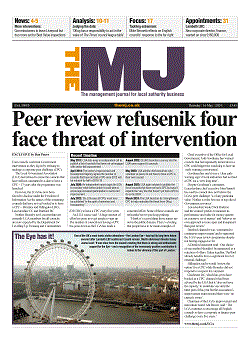Identifying greenhouse gas emissions is crucial to how councils can respond to climate change and meet net zero targets. Only when emissions have been identified can councils decide where to target interventions and provide decision makers with the evidence required to support action.
On 5 July, Local Partnerships will be on the climate change panel in the Innovation Zone at the LGA Conference in Bournemouth. The Innovation Zone is a lively, creative space designed to be the place for conference attendees to find the most interesting ideas. We will be showcasing our free tools for measuring greenhouse gas emissions, together with our partner Cambridgeshire CC.
The greenhouse gas accounting ‘Tool’ and the Waste Emissions ‘Calculator’ can be downloaded from the Local Partnerships website at www.localpartnerships.org.uk/greenhouse-gas-accounting-tool
Local Partnerships developed the Tool in 2020 with Local Government Association (LGA) grant funding, following input from (the then) BEIS and the Carbon Disclosure Project. Based on the international standard for greenhouse gas accounting, the GHG Protocol, the tool uses the BEIS (now DESNZ) emissions factors which are updated each year.
The Calculator was developed by Cambridgeshire CC and University College London with funding from the LGA net zero innovation programme and launched in January.
More than 270 councils have downloaded the Tool from the Local Partnerships website and, since its launch, the Calculator has been downloaded more than 80 times. Both are iterative documents in that we encourage open dialogue and feedback from user councils, asking them to let us know what they want to see added to them.
The Tool covers Scope 1, 2 and 3 emissions, including detailed guidance on reporting Scope 3 emissions, which can be 60-80% of a council’s emissions. These emissions come from purchased goods and services, employee commuting, working from home, leased assets, etc. The Calculator then encompasses more detailed accounting options in relation to waste as emissions linked to the collection, disposal and treatment of waste can often be 30-40% of a council’s total emissions.
This work is a true collaboration, showcasing the best of what the public sector can, and is, doing to address the climate crisis. Don’t miss the opportunity to come and hear about these free tools which can help councils meet their net zero targets.
@LP_AdeleG
This article is sponsored content for The MJ

